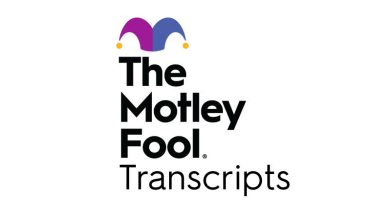3 Signs You’re Ready to Invest Some of the Money You Have in Savings

[ad_1]
These days, savings accounts are paying quite generously, making the idea of keeping extra money in the bank quite appealing. But in time, rates are apt to come down. And even if today’s generous savings account rates hold up for a while, the reality is that if you invest your money in the stock market, you could make a lot more.
Over the past 50 years, the stock market has rewarded investors with an average annual 10% return, as measured by the performance of the S&P 500 index. By contrast, you might earn 4.5% in a savings account today.
So, let’s say you have $10,000 to work with. At a 4.5% annual return, over a 20-year period, that sum will grow into a little over $24,000. But at a 10% annual return, that sum will grow to over $67,000.
That said, when you invest money, you take on the risk of losing it. And you may not have access to your money exactly when you want it.
For example, let’s say the market tanks one year. If that happens to be when you’d like to cash out some stocks to pay for a vacation, you’re pretty much out of luck.
That’s why it’s important to make sure you’re really ready to invest. But if these signs apply to you, it may be the right time to move some of your savings into a brokerage account.
Featured offer: save money while you pay off debt with one of these top-rated balance transfer credit cards
1. You have more than a six-month emergency fund
You need money in the bank at all times for unplanned bills. But generally speaking, if you have enough of an emergency fund to cover three to six months of essential expenses, then you’re in a pretty good spot to cope with the unexpected, whether it’s a major home repair or the loss of your job.
Now, if you’re the sole breadwinner of a large household and are self-employed, you may feel more comfortable with nine to 12 months’ worth of living expenses as your emergency fund. But once you’re beyond that point, investing your money makes sense.
2. You don’t have any major purchases happening in the next five years
Maybe you’re hoping to buy a home in four years, or you expect to need a new car within the next 24 months. If so, then you may not want to put your money into investments. If their value drops, it can take time for your portfolio to recover. And that may not happen soon enough if you’re working with a five-year timeline.
But if you aren’t anticipating any major purchases in the next five years, then you might as well invest your money. Even if your portfolio loses value, you’ll probably have time for it to recover ahead of whatever milestone you might need cash for.
3. You’ve educated yourself about investing and know where to start
You don’t want to kick off your investing career by throwing your money into random stocks and hoping for the best. Before you invest your money, make sure you know what you’re doing to a reasonable degree.
This doesn’t mean you have to become an expert in picking stocks overnight. But you should know some basics about what to look for in a stock — such as choosing companies with good cash flow and manageable debt.
And if you don’t think you’re equipped to choose individual stocks, that’s OK, too, because broad market index funds or exchange-traded funds (ETFs) are a good bet for people in your boat. The key, however, is to have an idea of where you’ll put your money once you move it out of savings.
It’s smart to keep your savings account nice and loaded up. But if these signs apply to you, you may be ready to start investing so you can generate even more impressive returns on your money than a bank will give you.
These savings accounts are FDIC insured and could earn you 11x your bank
Many people are missing out on guaranteed returns as their money languishes in a big bank savings account earning next to no interest. Our picks of the best online savings accounts can earn you 11x the national average savings account rate. Click here to uncover the best-in-class picks that landed a spot on our shortlist of the best savings accounts for 2023.
[ad_2]




